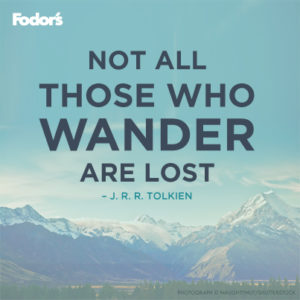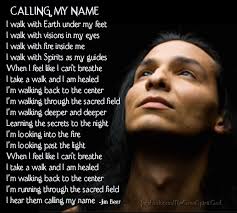 What do these novels have in common: Gulliver’s Travels, Odyssey, Adventures of Huckleberry Finn, The Fellowship of the Ring (trilogy), The Chronicles of Narnia (trilogy), Don Quixote, Travels with Charley, Eat, Pray, Love, On the Road, Under the Tuscan Sun, Innocents Abroad, Call of the Wild?
What do these novels have in common: Gulliver’s Travels, Odyssey, Adventures of Huckleberry Finn, The Fellowship of the Ring (trilogy), The Chronicles of Narnia (trilogy), Don Quixote, Travels with Charley, Eat, Pray, Love, On the Road, Under the Tuscan Sun, Innocents Abroad, Call of the Wild?
Well, each book is one of a million trillion books about travel as a metaphor for the life journey. In each, the main character—often after a life changing event—takes off on a journey to figure things out, to seek wisdom, and to find a more authentic life. When they come back, they have tied up loose ends and gadined new insights about themselves and the world. The good guys/gals in the Fellowship of the Ring and the Chronicles of Narnia, also save the world from evil oppressors.
 Now, what do these biblical stories have in common with the above novels: Moses Parting the Red Sea, Noah and the Ark, Jonah and the Whale, Paul on the Road to Damascus, Jesus traveling between small towns to spread his teachings?
Now, what do these biblical stories have in common with the above novels: Moses Parting the Red Sea, Noah and the Ark, Jonah and the Whale, Paul on the Road to Damascus, Jesus traveling between small towns to spread his teachings?
These tales have the exact same theme: travel, the life journey, finding wisdom along the way, entering a Promised Land. Like so many novels, geographic travel in Scripture is the setting for a spiritual journey and for finding peace and wholeness.To a follower of Jesus, the life task is to become more Christ-like. Islam talks also about the life journey. Mohammed, the Prophet of Islam wrote:
“You’re on a journey. The journey is life. The destination is Paradise or Hell. The path you take on your journey will determine your destination. The length of your journey is not fixed; it will vary for each individual with some arriving at their destination in their youth whereas other will reach old age before they arrive. Yet one thing for certain is that everyone WILL arrive at their destination.”
 Furthermore, the Buddha’s path to enlightenment began when he traveled from the safety and privilege of his wealthy family, into the world of everyday people. Native American stories often tell of holy journeys, often to a sacred place (mountains, rivers, natural landmarks). For example, a Shoshone oral tradition tells about a young hunter who chased a white buffalo into a lake. Since that time the spirit of the white buffalo has lived in the bottom of Bull Lake. For this reason, Bull Lake is a sacred place and Shoshone people who seek to make a spiritual connection with the spirit world will journey to and spend the night on the banks of the lake: a pilgrimage to the spirit world.
Furthermore, the Buddha’s path to enlightenment began when he traveled from the safety and privilege of his wealthy family, into the world of everyday people. Native American stories often tell of holy journeys, often to a sacred place (mountains, rivers, natural landmarks). For example, a Shoshone oral tradition tells about a young hunter who chased a white buffalo into a lake. Since that time the spirit of the white buffalo has lived in the bottom of Bull Lake. For this reason, Bull Lake is a sacred place and Shoshone people who seek to make a spiritual connection with the spirit world will journey to and spend the night on the banks of the lake: a pilgrimage to the spirit world.
Written and oral stories everywhere in the world parallel geographic travel as spiritual/life journey. This is an old, old theme that calls us all to wander and grow, either in our own neighborhood or, for some, on the open highway.
These stories and faith traditions do more than call us to journey; they also motivate us to get moving and nurture us as we travel. Psalm 121:8 says, The Lord will keep your going out and your coming in from this time forth and forevermore.
Confucius, a Chinese teacher and philosopher born 551 BC wrote, A journey of a thousand miles begins with the first step. More nurturing and inspirational sayings from world faith:

From Islam
You don’t have to tell me or any of my wandering friends to hit the highway, we are off again and again without much nudging. However, we face two pitfalls. The first is being so wrapped up in our own journey that we forget to assist others with theirs. Christian Scripture calls us to love and care for others, as we care for ourselves. The story of the Good Samaritan tells about a one traveler helping another. Buddhism promotes human compassion towards all living things. The heart of Muslim belief is the principle of tawhid or oneness. This oneness, or unity, has been described as that which dominates the mind in Islam, while the heart is intrinsically linked to the concept of compassion. Native American traditions speak of an identical kind of compassion, that there is only oneness in the spiritual realm where we cannot be separate or disconnected, thus compassion is a living word that affirms interconnection with creator and creation and each other in the oneness of the spiritual universe.
The second pitfall travelers face is never finding any resolution about the things that burden their hearts and/or their spiritual issues. Ancient stories also tell about travelers doomed to wander endlessly. Moses and the people he led out of Egypt only had to wander 40 years before the were allowed to enter the Promised Land. Some life travelers get lost but find their way in the end, such as Red Riding Hood. Some die en route. Into the Wild, a contemporary book based on a true story, tells of a young man on a soul-searching journey who perishes in the harsh Alaska terrain. Resolution is not wandering aimlessly in life, always searching, never finding resolution or completion. We must also enjoy a “homecoming”.
Now, should we find such things as resolution or wisdom, we do not need to stop traveling.However, we must come home to a non-literal place of peace and wisdom at some point, or all the journeying is in vain. The journey will get boring. Yet, peace and contentment it is not a hard place to find–not nearly as difficult as finding that campground that was supposed to be just around the next curve. People I know who have begun to find these gifts are not embroiled anymore in high drama situations, they are able to “live and let live”. The get over their family stuff and accept themselves as they are – the good and the messy parts. They spend their time doing pleasing things and helping others.They develop healthy boundaries. Priorities change. Experiences and people matter more than things.
Parts of our life journey are undertaken alone. However, sharing with others enriches the process. Belonging to a healthy faith community is a great start. Yet, those of us who are literally traveling cannot commit to regular attendance at a church or other house of worship. Some people feel guilty, while others, like myself, do just fine seeking the divine in the great outdoors. I take seriously the Christian Scripture (Acts 17:24) that tells us:
“The God who made the world and everything in it, being Lord of heaven and earth, does not live in temples made by man”
That’s right! We can pursue our growth and development outside of man’s churches. The key is making such pursuits proactive, not accidental or incidental. We must participate in the journey, otherwise, it is just an extended wandering to nowhere.
Wherever you are going, travel with a purpose and help others along the way! Never forget:

Tolkien was a Christian writer who wrote the Hobbit, Fellowship of the Ring and other great works about the life journey!
Sunday Reflections are filed under the Back Road Faith menu
Copyright, Jane Willis, 2016



